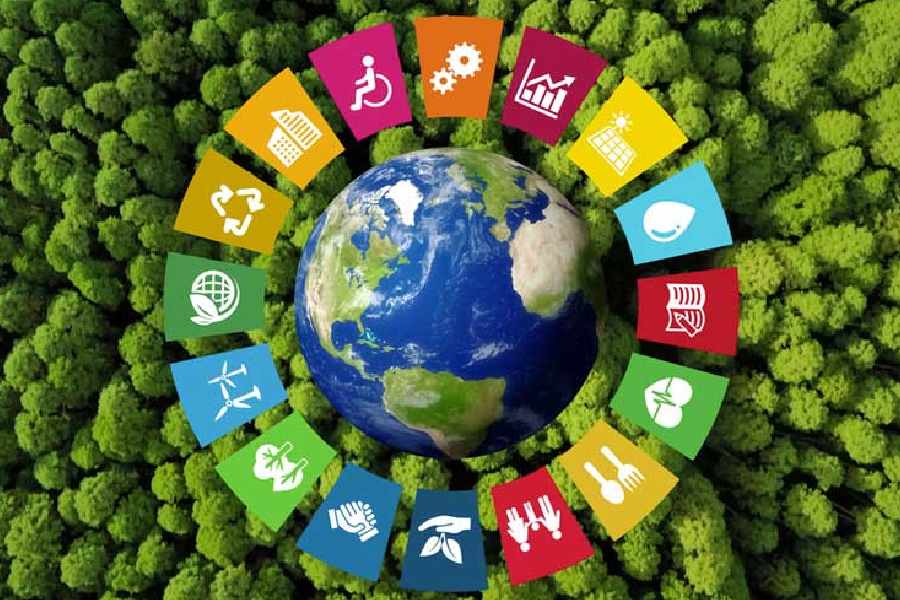The deleterious impacts of the changing climatic conditions are no longer limited to the domain of theory; they are an unfolding, palpable reality being experienced worldwide. The agenda for sustainable development adopted by the United Nations member states in 2015 to reverse some of the climate change-induced transformations and save the planet from disaster has thus acquired a greater urgency in this respect. The urgent call for action mandates a global partnership to ensure development on a number of social indicators to achieve holistic development with a deadline set for 2030. However, according to a recent report released by the Centre for Science and Environment, India’s performance on some of the sustainable development goals has been tardy. The report, State of States: Are We on Track to Achieve Sustainable Development Goals 2030, which drew data from the UN’s SDGs report and the NITI Aayog’s report on SDGs for 2024, has revealed that out of the 16 SDGs, India has fallen short in meeting as many as nine of them; these include the goals of zero hunger, good health and well-being, gender equality and sanitation, peace, justice and strong institutions. The nation thus ranks 109 in a cohort of 167 countries.
The mixed performances of individual states have led to India’s unimpressive scorecard. For instance, while Uttarakhand topped the SDGs chart with a score of 79.2, Bihar was at the bottom of the pile with 56.9. Even though Tamil Nadu shone at the third position with a score of 78, it lagged behind significantly in various parameters in as many as 12 SDGs. Interestingly, West Bengal emerged as a bright spot, having improved its score from 62 in 2021-22 and 70 in 2022-23, respectively, to now 72.1 in 2023-24. But even this growth is uneven. Ranking 13th among 28 Indian states, Bengal was placed at the top in SDG 7 (affordable, clean energy) and SDG 14 (Life Below Water) among coastal states, but struggled in critical areas like poverty and hunger, gender equality and climate action. A more robust policymaking to plug these internal gaps is thus a necessity. The report also exposed shortcomings in India’s tracking mechanism — the removal of extreme poverty as an indicator is an example — which prevent focussed interventions. What is also imperative is a policy reimagination of the idea of growth. The pursuit of a GDP-oriented growth template that remains indifferent to key socio-environmental indices is foolhardy.










